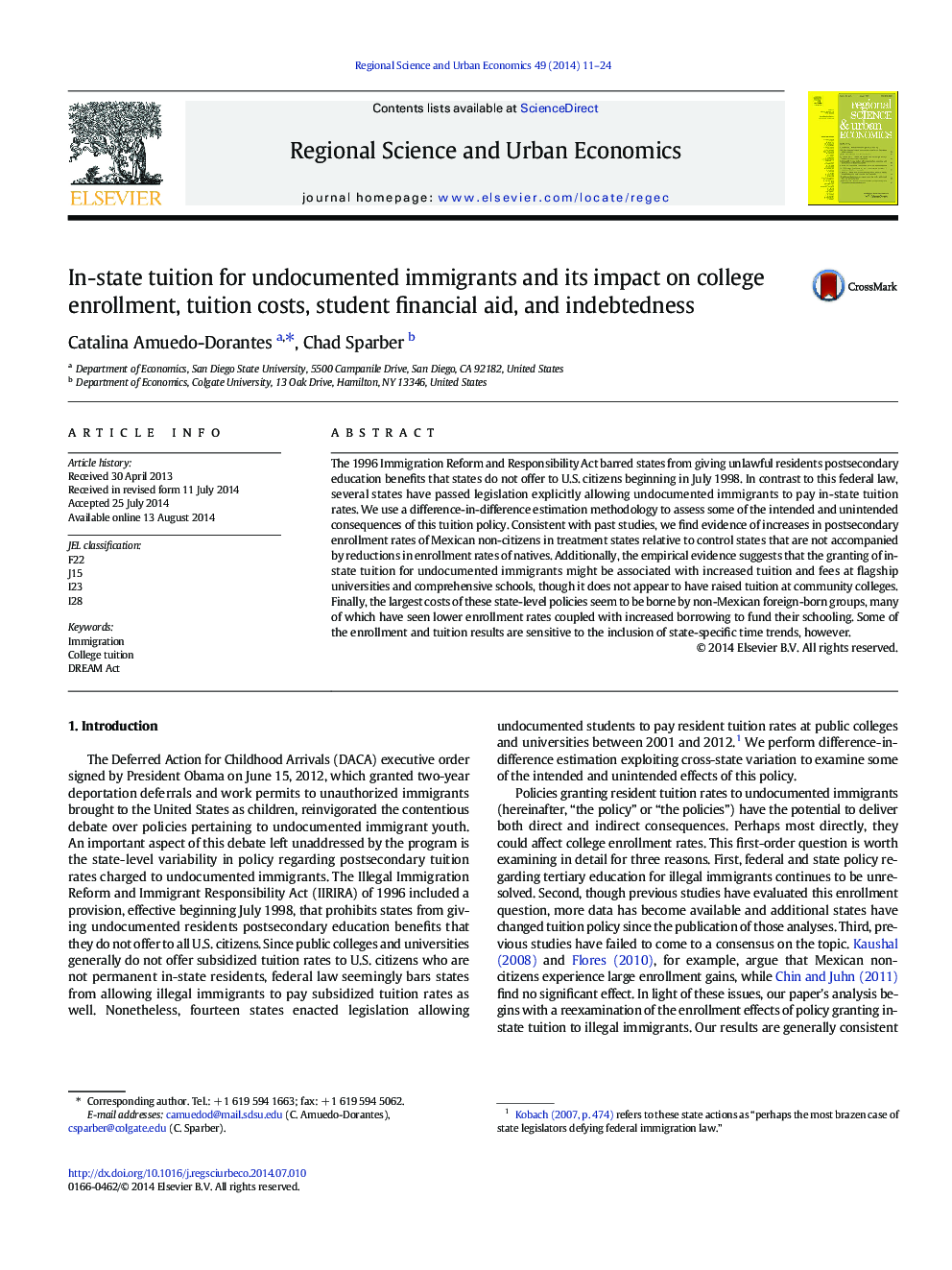| Article ID | Journal | Published Year | Pages | File Type |
|---|---|---|---|---|
| 7383801 | Regional Science and Urban Economics | 2014 | 14 Pages |
Abstract
The 1996 Immigration Reform and Responsibility Act barred states from giving unlawful residents postsecondary education benefits that states do not offer to U.S. citizens beginning in July 1998. In contrast to this federal law, several states have passed legislation explicitly allowing undocumented immigrants to pay in-state tuition rates. We use a difference-in-difference estimation methodology to assess some of the intended and unintended consequences of this tuition policy. Consistent with past studies, we find evidence of increases in postsecondary enrollment rates of Mexican non-citizens in treatment states relative to control states that are not accompanied by reductions in enrollment rates of natives. Additionally, the empirical evidence suggests that the granting of in-state tuition for undocumented immigrants might be associated with increased tuition and fees at flagship universities and comprehensive schools, though it does not appear to have raised tuition at community colleges. Finally, the largest costs of these state-level policies seem to be borne by non-Mexican foreign-born groups, many of which have seen lower enrollment rates coupled with increased borrowing to fund their schooling. Some of the enrollment and tuition results are sensitive to the inclusion of state-specific time trends, however.
Keywords
Related Topics
Social Sciences and Humanities
Economics, Econometrics and Finance
Economics and Econometrics
Authors
Catalina Amuedo-Dorantes, Chad Sparber,
